Political storm leaves Rahul Gandhi’s constituents fuming: ‘What was the need to attack him?’
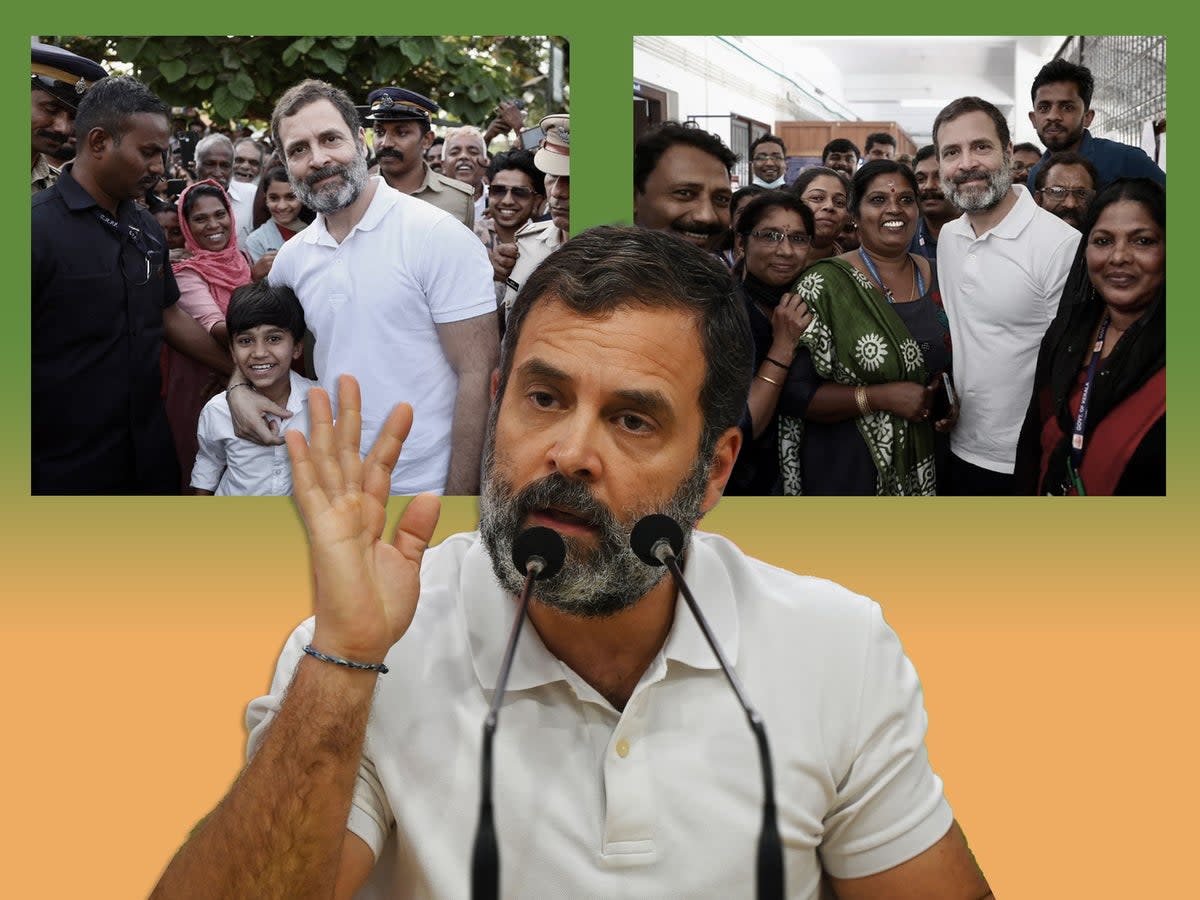
Wayanad, in the southern Indian state of Kerala, is a district that has been rendered leaderless overnight. Rahul Gandhi, one of the most prominent members of the opposition Congress party – and a scion of the most powerful political dynasty in India’s independent history – has been disqualified as the area’s MP.
Mr Gandhi’s deserted office in Kalpetta, lost in a galaxy of boards showcasing his photos from younger days, has remained shut since he was banned, after being handed a two-year prison sentence in a criminal defamation case. His crime? Alleging during a 2019 speech that a list of high-profile “thieves” share the surname of Modi.
Naming the fugitive diamond tycoon Nirav Modi, banned Indian Premier League chief Lalit Modi and India’s prime minister Narendra Modi, Mr Gandhi asked: “Why do all these thieves have Modi as their surname?”
While none of the three are related, Modi is a common surname in the prime minister’s home state of Gujarat, where the criminal defamation case was brought at a high court by a local member of the ruling Bharatiya Janata Party (BJP), whose surname is also Modi.
The Congress party has called the verdict “erroneous and unsustainable” and pledged to fight the disqualification “both legally and politically”, planning demonstrations and protest marches across the country.
On the surface, life for constituents in Wayanad goes on as usual. Mr Gandhi, the great-grandson of India’s first prime minister Jawaharlal Nehru, came to power here in 2019, winning votes among the district’s sizeable Muslim population. The majority of the population is engaged in agriculture.
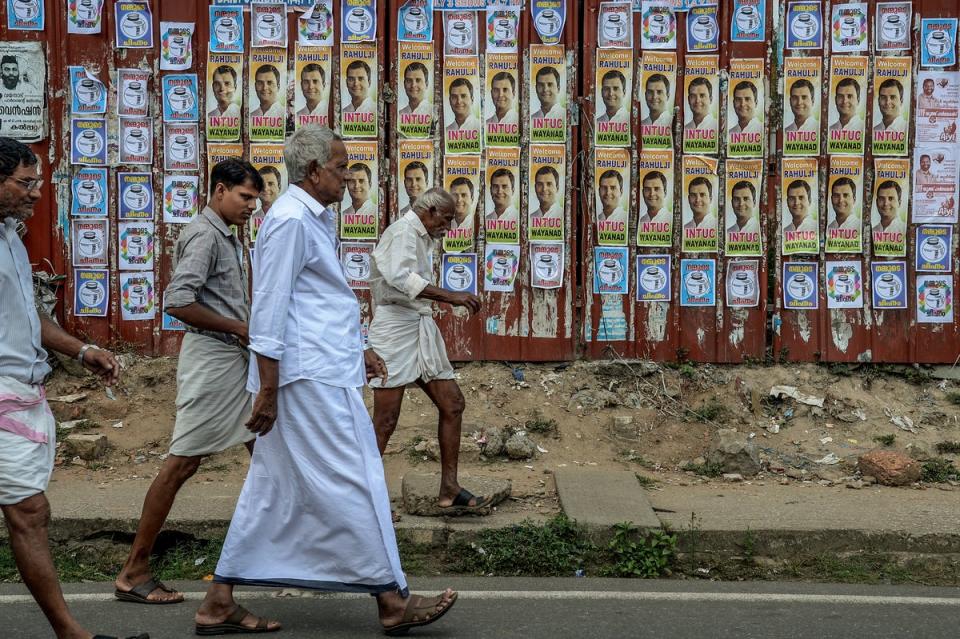
For locals such as Sindhu Prasad, who works in a state-run creche, the hurt runs deep. She says people have grown fond of Mr Gandhi in the past four years because of his “dedication to Wayanad”, with the MP regularly making the 4,000km (2,485 miles) round trip to visit his constituency from Delhi.
Ms Prasad says that Mr Gandhi is no less than a father figure for her and her family members.
“He is like my father, we worship the person he is. He is valued a lot here in Wayanad and of course what has happened to him is making me more angry than disappointed,” she says.

His leadership in Wayanad had struck a chord with women for whom he has set aside funds from his MP’s salary. He is also easily accessible in the district, she says.
A co-worker of Ms Prasad says: “This a clear violation of Gandhi’s freedom of speech and expression above everything. I am sincerely hoping that he will file an appeal to protect his basic constitutional freedom and fight to come back as our leader.” The move is politically vindictive, she says.
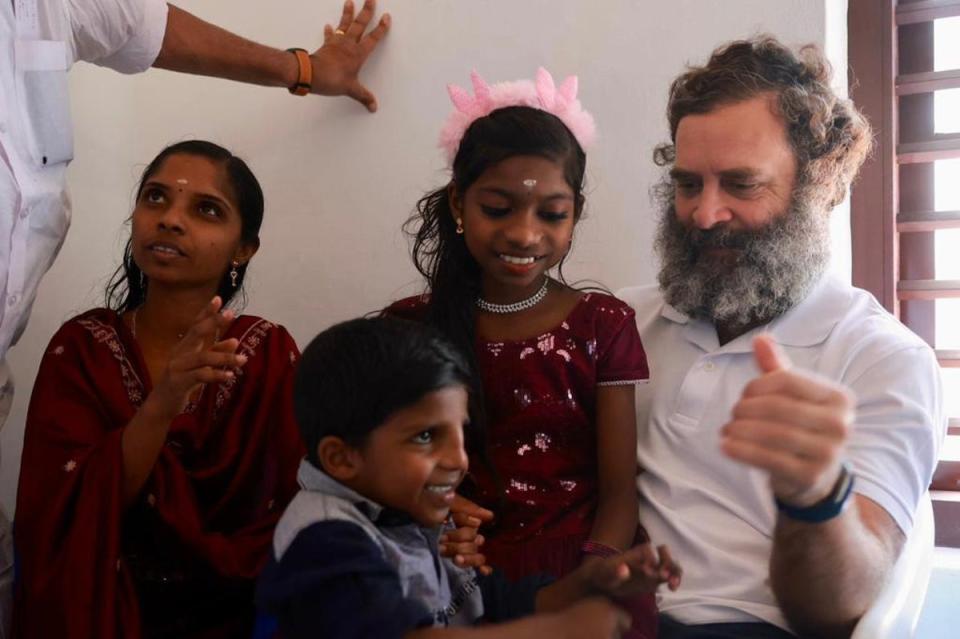
Congress party workers are holding sombre protests for a few hours in Wayanad during The Independent’s visit to the district, and though the scenes are not heated they are quick to offer verbal condemnation of what has happened to their MP.
The workers point to Gandhi’s Bharat Jodo Yatra (unite India march) as the trigger for the governing party’s backlash against him. The 52-year-old walked the length of India in around five months, mobilising support for a more democratic and peaceful country after what the opposition describes as a surge in hate crimes in recent years, especially towards minorities, under the current administration.
“A very real Rahul Gandhi emerged from the walkathon which has rattled Modi and in response, Modi wants to stall the tallest opposition leader challenging him in the country,” says District Congress Committee (DCC) president ND Appachan.
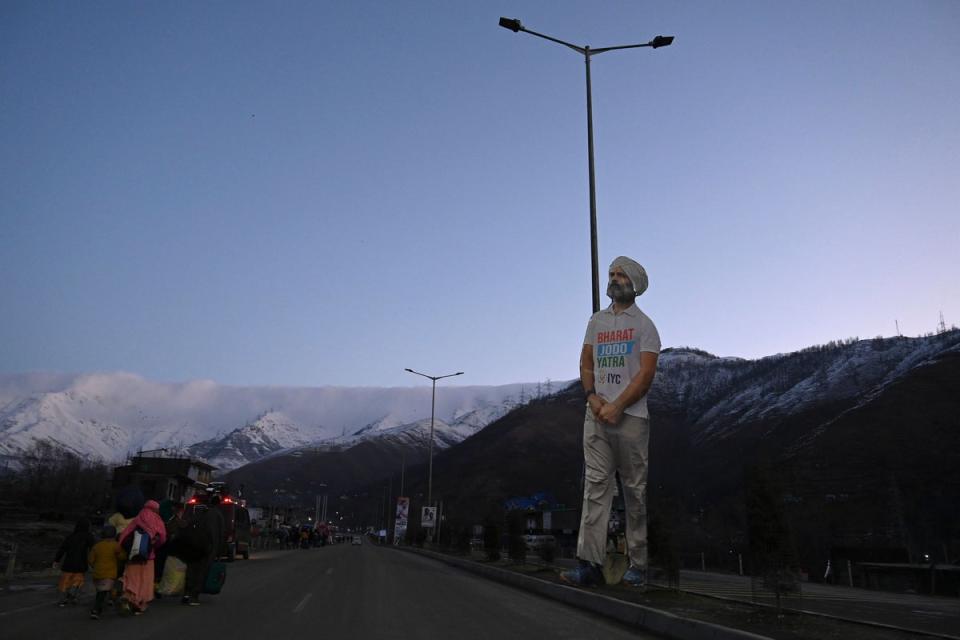
The move to extract Mr Gandhi from Wayanad is a “clear interference from the BJP and everyone saw how it came within weeks of our leader exposing Modi’s nexus with businessman Gautam Adani in the parliament in New Delhi”, says the 72-year-old. This clearly shows that BJP is scared of Mr Gandhi, he adds.
Mr Gandhi has repeatedly used his speeches in parliament to raise the apparently close ties between the prime minister and Mr Adani, who was Asia’s richest man until a scathing report by Hindenburg Research rattled investors, wiping billions from Adani Group stocks. The Adani Group has denied any wrongdoing.
Mr Gandhi said last week that the disqualification has been manufactured to prevent him from speaking in the legislature about his allegation of an infusion of an unaccounted-for $3bn (£2.8bn) into shell companies owned by the Adani Group.
Mr Modi’s top leader and former federal minister Ravi Shankar Prasad has maintained that Mr Gandhi’s disqualification from parliament has no connection to the Adani Group controversy.
“We are going to fight this tooth and nail because this is a fight for belief in the ethos of our democracy,” says Mr Appachan, a senior party worker with close ties to Mr Gandhi.
The Independent also spoke to Rajamma Vavathil, a 76-year-old nurse who lives in Wayanad, who says she was working in the maternity ward where Mr Gandhi was born and feels a close personal connection to the Congress scion ever since that afternoon in June 1970.
“He is my son, and he is a blessed man,” she says. “I am very angry and I felt the dejection personally.”
A prominent local tribal leader and national award-winning rice conservationist, Cheruvayal Raman, who has met Mr Gandhi just once, says he is ready to defend the leader “with bow and arrow if needed”.
“What was the need to attack him like this? I will protect him like a son, and just like a father, advise him to not say things that will end up hurting his politics as the times are not favourable,” says the Kurichiya tribal leader who was awarded the prestigious Padma Shri title – the fourth highest civilian award bestowed by the Indian president – for contributing to food security practices in India by preserving indigenous paddy crops.
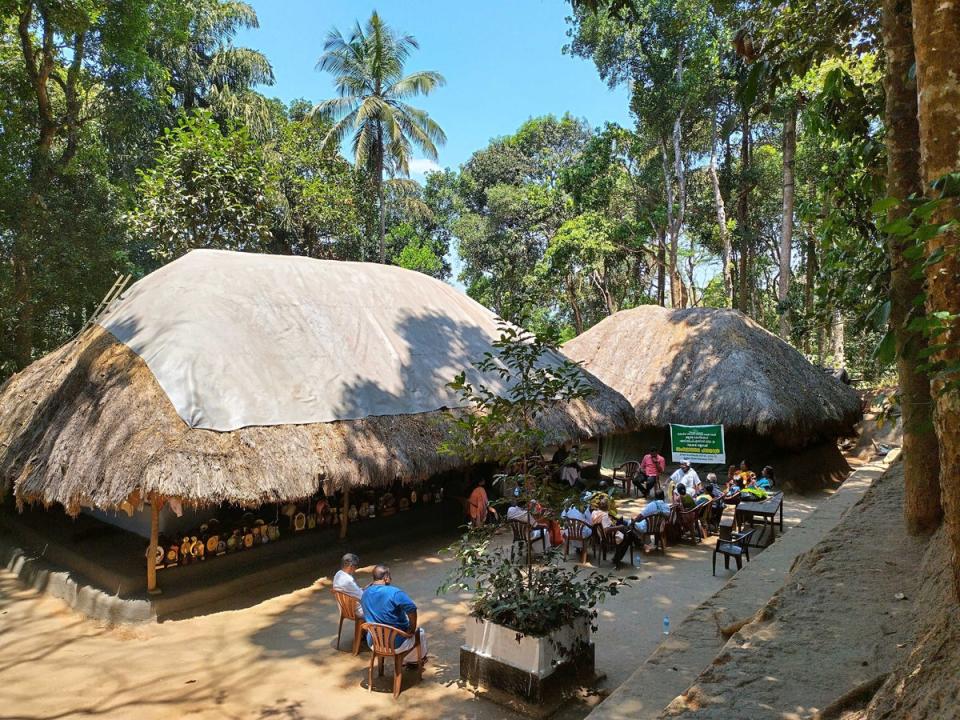
Kurichiya is one of the protected tribal identities in Wayanad district, deriving their name from Kuri or sandalwood paste they apply on their bodies as an identity marker.
Even Mr Gandhi’s local political rivals are critical of the move to oust him, in what they see as a bitter-sweet moment. P Gagarin, a senior politician for the Communist Party of India-Marxist (CPI-M), maintains that the Congress MP has been ousted in a “fascist manner”, but argues it is hardly a loss for the community in Wayanad.
He points to the fact that the district remains without any rail connectivity – the nearest station is Kozhikode, 110km (68 miles) away. “Just look at the number of roads that are in poor condition in this serene district. The human-animal conflict has not been controlled and to top it, the forest losses continue,” he says.
Buried deep in the Western Ghats jungle, Wayanad is on the frontline between efforts to conserve India’s wildlife and to protect the livelihoods of those who live here. It’s a major political talking point – there have been 105 deaths due to elephant attacks in Wayanad in the last five years alone, according to a report.
Rather than addressing real people’s problems, argues Mr Gagarin’s party ally Jain Antony, Mr Gandhi spends his public statements speaking out about Mr Modi in Delhi.
“While he is an utter failure of a politician for Wayanad, we feel bad for the fascist move by the Modi administration to undemocratically remove him from the parliament,” he says.
“We are not protecting him, we are protecting democracy. The Congress only cares about protecting Gandhi,” he says.
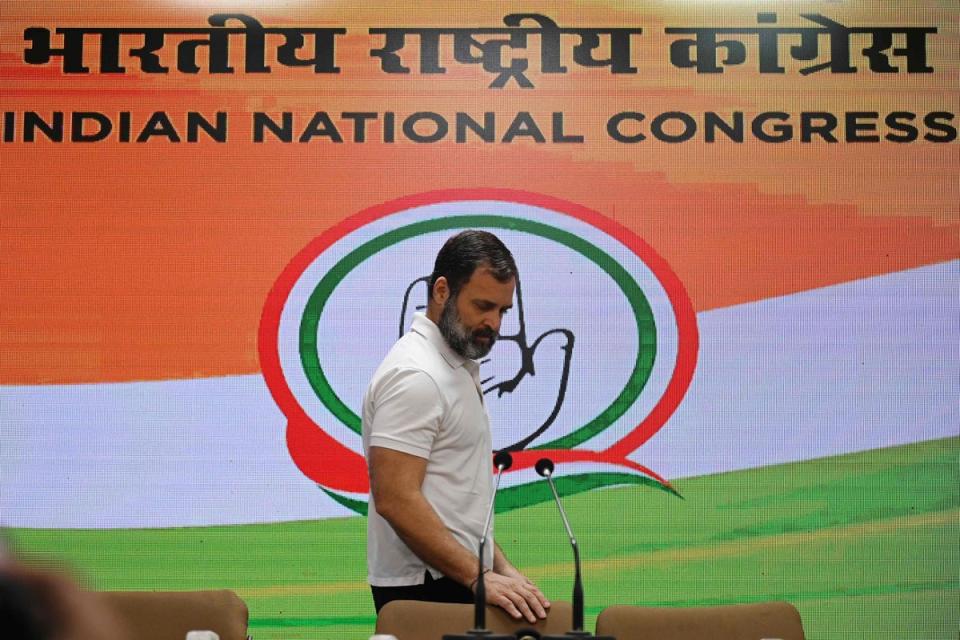
Regardless of their reason for fighting Mr Gandhi’s disqualification, local Congress party workers are confident they will be successful ahead of the next general election, which will take place in 2024.
“He will come back as our MP,” Mr Appachan firmly states.


